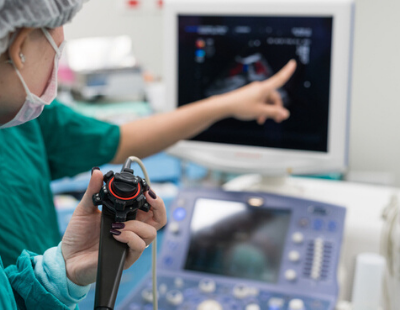Scans reveal Covid-19 effects on the heart

Almost half of Covid-19 patients who have been hospitalised show scan abnormalities that resemble the early stages of heart failure, a global research study reveals.
One in seven hospitalised patients show severe heart damage that could have a major effect on their health, the international study shows.
The findings highlight the impact of Covid-19 on the heart and suggest that monitoring heart function with scans is an important part of care for people with severe Covid-19.
Researchers from the British Heart Foundation Centre of Research Excellence at the University of Edinburgh examined heart scans, known as echocardiograms, from 1216 Covid-19 patients across 69 countries.
Among patients who did not have pre-existing heart disease, almost half had abnormal changes to how the heart was pumping. One in eight patients with no pre-existing heart disease showed evidence of severe heart dysfunction.
Researchers say these changes had not been detected in these patients before and could be a direct effect of the virus.
Damage was seen in both sides of the heart. Damage to the right side of the heart is known to occur in cases of severe flu, but damage to the left side was observed more commonly with Covid-19 than has been reported with flu say researchers.
A third of patients changed their treatment to help support their heart as a result of the echocardiogram.
The researchers caution that only those who had suspected heart problems received a heart scan, meaning it is not known how common heart changes are in those who did not receive a scan.
Professor Marc Dweck, University of Edinburgh, said” Covid-19 is a complex, multisystem disease that can have profound effects on many parts of the body, including the heart. Many doctors have been reluctant to order echocardiograms for patients with Covid-19 because it’s an added procedure which involves close contact with patients.
Our work shows that these scans are important – they changed the treatment for a third of patients who received them. We now need to understand whether this heart damage is reversible and what the long-term consequences of COVID-19 infection are on the heart.”
Follow up studies using MRI scan are now underway across the UK to understand whether the changes to heart function will be long-lasting in people who have recovered from Covid-19.
The study was published in the European Heart Journal Cardiovascular Imaging and was funded by the British Heart Foundation.
The BHF Centre of Research Excellence in Edinburgh is a five year award from the British Heart Foundation to foster excellence in cardiovascular research, based within the Centre for Cardiovascular Science, Queen’s Medical Research Institute, on Edinburgh BioQuarter.



